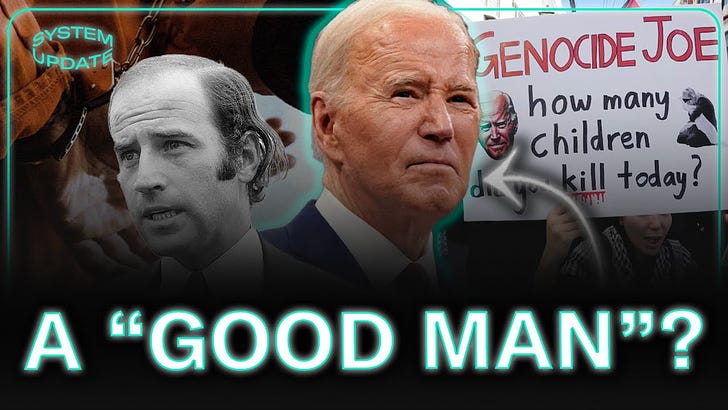The Contradictions of Joe Biden: Compassion and Controversy
A Deep Dive into Joe Biden's Policies and Public Persona
In the political arena, few figures have generated as much polarized opinion as Joe Biden. While many praise him as a compassionate and empathetic leader, a deeper examination of his policies and actions over his lengthy career reveals significant contradictions. From his stance on drug policy to his role in major legislative acts, Biden's record raises critical questions about the alignment of his public persona with his political decisions.
The Praise Before the Criticism
A common pattern has emerged among those who criticize President Biden: they first express personal admiration for him before voicing their concerns. Journalists, politicians, and even close friends preface their critiques by affirming Biden's goodness and their respect for him. For example, Van Jones on CNN tearfully acknowledged his admiration for Biden before suggesting it was time for him to step aside. This practice underscores the complex relationship many have with Biden—acknowledging his positive qualities while questioning his capability to lead effectively.
The 1990s Crime Bill and Drug Policy
One of the most contentious aspects of Biden's career is his involvement in the 1990s crime bill, officially known as the Violent Crime Control and Law Enforcement Act of 1994. Biden has proudly referred to this legislation as the "Biden Crime Bill." The bill imposed severe penalties for drug offenses, including mandatory minimum sentences that disproportionately affected African American communities. Biden's insistence on harsh punishments for drug users, particularly those caught with crack cocaine, starkly contrasts with the compassion he later showed for his son Hunter Biden's struggles with addiction.
In a 1989 response to the State of the Union, Biden emphasized the need to punish drug users alongside dealers, advocating for stringent law enforcement measures. This approach reflected a broader "tough on crime" mentality that dominated the era but has since been criticized for its long-term social impacts, especially on marginalized communities.
Social Security and Medicare
Another area of significant contradiction is Biden's historical stance on Social Security and Medicare. Despite the Democratic Party's general opposition to cuts in these programs, Biden has, at times, advocated for freezing federal spending, including on Social Security, Medicare, and Medicaid. In the mid-1990s, Biden repeatedly pushed for spending freezes that would affect these vital programs, arguing that they were necessary to balance the federal budget.
The Iraq War
Biden's support for the Iraq War is another point of contention. As Chairman of the Senate Foreign Relations Committee, Biden played a crucial role in the lead-up to the 2003 invasion. His advocacy for the war, based on now-debunked claims about weapons of mass destruction, contributed to a conflict that resulted in significant loss of life and long-term instability in the Middle East. This decision remains a critical part of his legacy, particularly among those who view the war as a catastrophic mistake.
Conclusion
Joe Biden's long career in public service is marked by significant achievements and deep controversies. While his supporters emphasize his empathy, personal warmth, and dedication to public service, his critics point to a history of policy decisions that seem at odds with his professed values. Whether it is his role in the 1990s crime bill, his fluctuating stance on social security, or his support for the Iraq War, Biden's record presents a complex portrait of a leader whose actions have profoundly shaped American policy and society. Understanding these contradictions is essential for a comprehensive evaluation of his impact and legacy.




